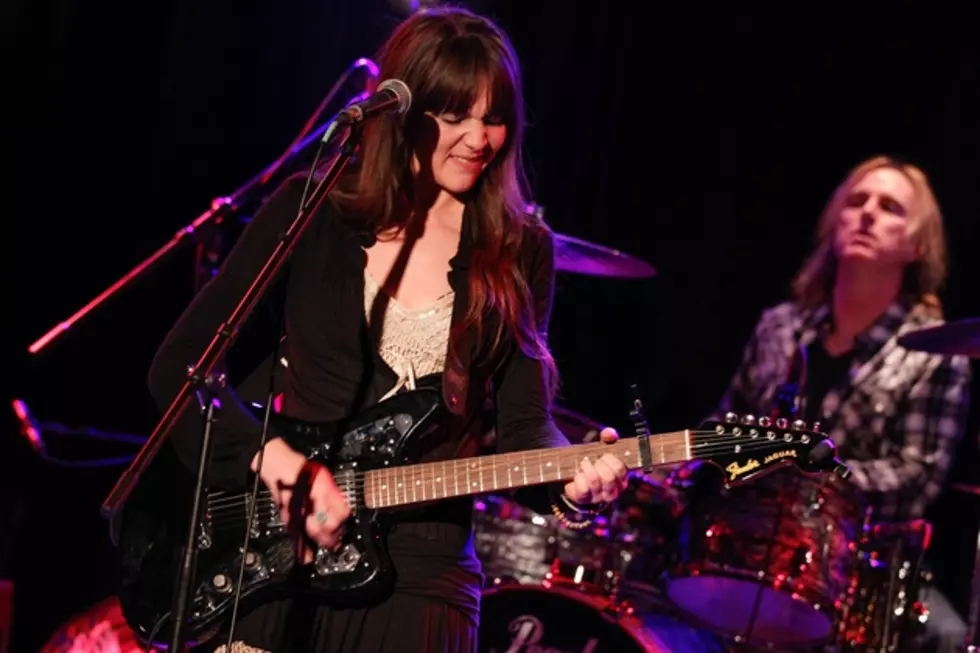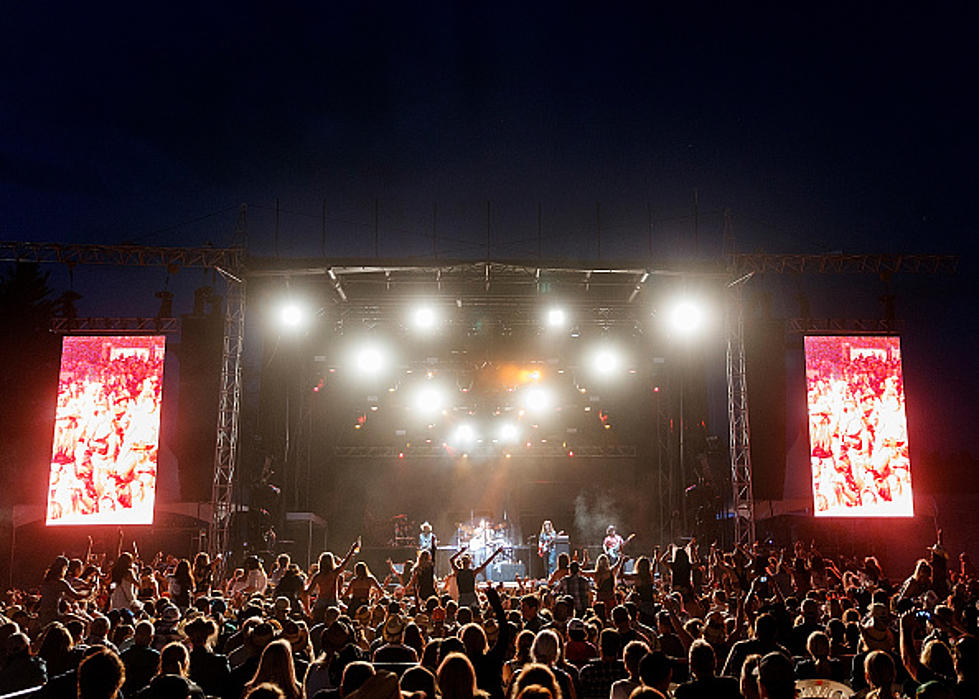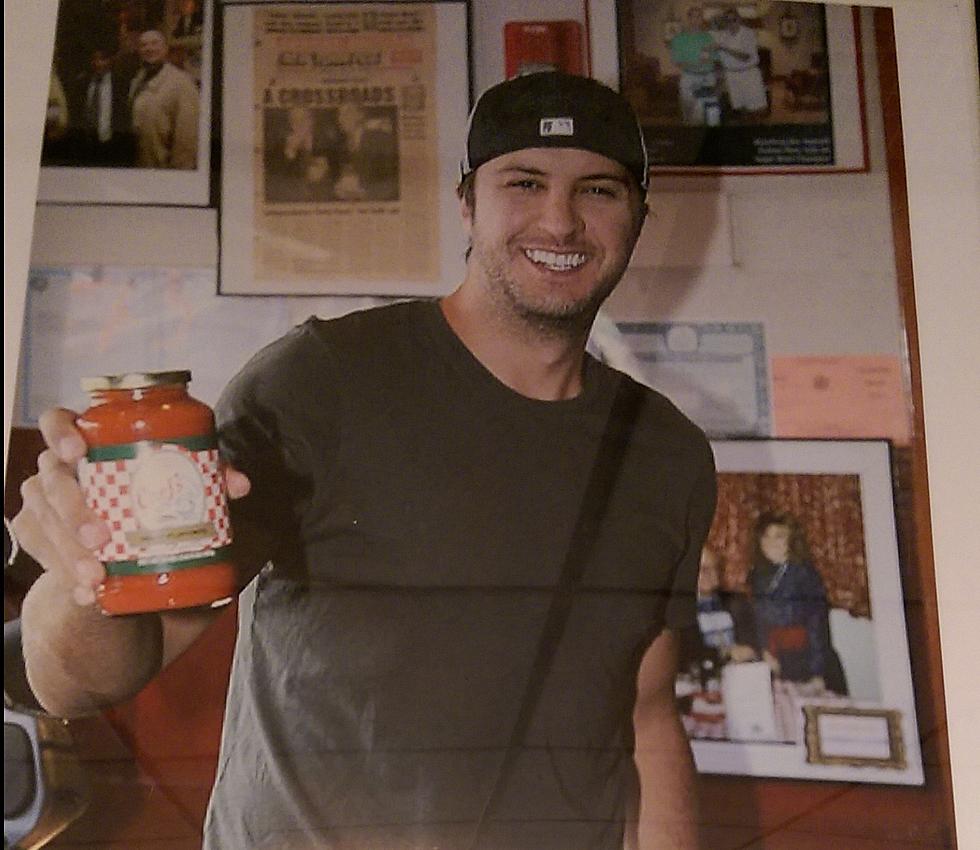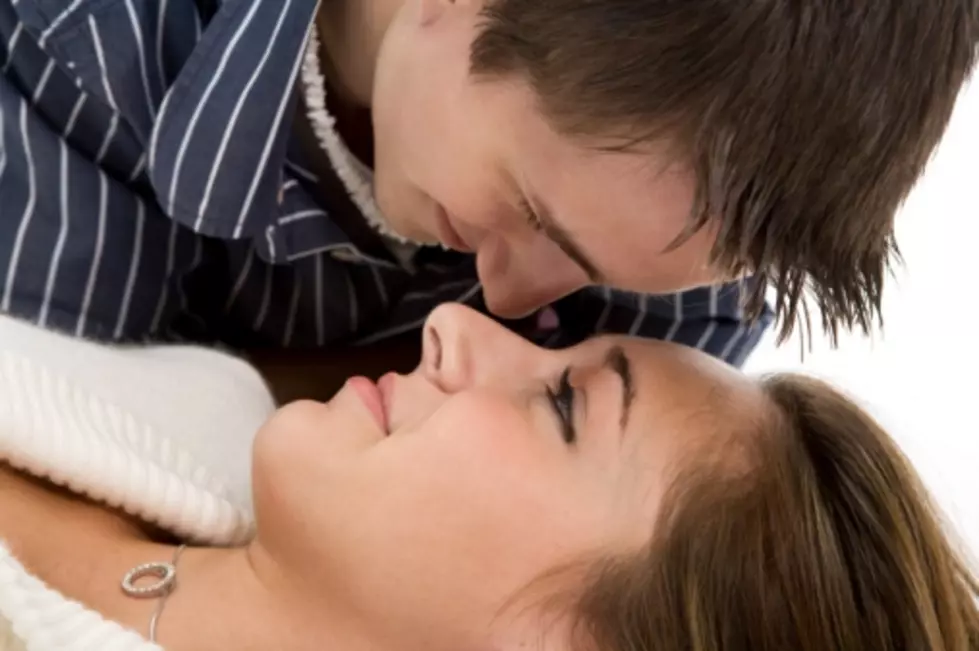
Raelyn Nelson Interview: Willie Nelson’s Granddaughter Forges Her Own Path for New EP
If you're an aspiring country music artist, and your grandfather happens to be Willie Nelson, it might be easy to assume that you've got an easier road ahead of you. But that's not necessarily the case.
Raelyn Nelson may have a famous last name, but she's going through the same hard slog as every other singer-songwriter in Nashville. The Raelyn Nelson Band recently self-released their self-titled debut EP -- which features a musical approach that's been aptly described as "country garage rock" -- and Nelson is making the rounds, knocking on doors, looking for gigs, fans and media support while working more than one job.
The EP marries Nelson's more traditional country influences with the no-frills rock aesthetics of her band mates, producer/co-writer Jonathan Bright, Paulie Simmons and Preach Rutherford. It's a long way from mainstream Music Row fare, but Nelson is doggedly determined to pursue her own path, not simply ride the coattails of her famous surname.
That said, one good thing about having Willie Nelson as your grandfather is, it probably makes it a little easier to score a guest appearance on your album. The country legend gives a vocal turn on 'Moon Song,' showing a very different side than his own albums would ever afford him the opportunity do to.
The Boot caught up with Raelyn Nelson recently to discuss the new album, her unusual mix of influences, the struggles and joys of being independent and much more in the following interview.
For more information about the Raelyn Nelson Band, visit their website. Preview their EP here, and download at from iTunes here.
How did this project come about?
A couple of years ago, I was writing some songs, and through a mutual friend I met J.B. -- Jonathan Bright. I went over there just to put down some demos of what I was doing, and he said, "Do you want to write together?" And I said, "Yeah!" At that point I was just, I want to do whatever. I want to write, I want to play. Which I still am.
He said okay, so we started getting together and basically finishing the songs that I had started. Then we started writing songs from scratch together, and it kind of molded into what is now the Realyn Nelson Band, which is, he's a lot of rock, and my vision comes from old country. So it's kind of like those old country melodies, mixed with some dirty rockers backing me up, and me banging on a ukelele, trying to be heard over them. [Laughs].
The ukelele is an unusual choice. Is that your primary instrument?
Well, it's funny, my grandpa gave me a guitar when I was 14. He gave me a Martin acoustic, and I started taking lessons and learned how to play. I played acoustic guitar all the way up until two years ago. J.B. had a ukelele project going at the time, and they were doing a Replacements covers album, all on ukelele, and so he was really into the ukelele, and he had a couple of them lying around. I picked it up, and he taught me the chords, and for some reason it just, I feel more comfortable playing the ukelele. I know I've only been playing it two years, but I would much rather pick up a ukelele and play that in front of people than pick up the guitar, even though I've been playing the guitar longer.
I still play guitar. When I go to write a song, I'll pick up a guitar to hear the notes, but with the band I'd rather play the ukelele.
I would call it a mix between Loretta Lynn and Cheap Trick. Kinda like Cheap Trick with a female singer. There's a little bit of pop in it, and a lot of rock, and I'm the country in the band.
How would you describe the sound of your band? Your website calls it "country garage rock."
Some critic called it that, and we liked it, so we went with it. I would call it a mix between Loretta Lynn and Cheap Trick. Kinda like Cheap Trick with a female singer. There's a little bit of pop in it, and a lot of rock, and I'm the country in the band. My voice is definitely more of a country-sounding voice than a rocker. But I hope to be a rocker one day. [Laughs]. The guys in the band, when I say, "I'm a rock star! I'm a rocker!" They says, "No, you don't rock." [Laughs]. I'll just pretend to rock with them.
It's hard to even put it in a genre. Country rock? But when you think of country rock you think of Eric Church nowadays. Not that he's not great, but it's not really Eric Church-y, either.
Who are some of your vocal influences?
I love Loretta Lynn and Dolly Parton, and I like all the pop girls, too. I like Lady Gaga, and I like Pink. I listen to all those girls. But I'm really inspired by simple stuff like Loretta and Dolly, and the pure sound of them. Kitty Wells, I love her old stuff. The Carter Family.
Bluegrass feeds my soul. I was able to be around a lot of bluegrass festivals, and I was very inspired by that bluegrass sound. Of course, I can't make that sound -- I'm not as good a player as those guys. But I definitely lean toward that old country sound when I want to hear music, and when I write music. I lean toward simple melodies and simple chord changes. There's not a whole lot of chord changes in my original songs. Now, when I get with J.B., he's very rock and a lot of pop, and he throws in all these chords.
I've learned so much from him. Thank God I met him, because I've learned so much from him, my musical education has increased so much in the last few years. I'm a better player -- and I'm not even a player. I wouldn't even classify myself as a player. That's one of the first things he said to me, actually. When I categorized myself as a player, he said, "You're not a player." [Laughs]. He definitely puts me in my place, all of the time.
When you live in Nashville -- you live here, too -- there's so many great, amazing players. I'll tell you what, I am definitely in awe of all these great singers who can sing without playing an instrument, because I don't know what to do with my hands. So I'd rather be playing my simple chord changes on the ukelele and banging it out, than trying to figure out what to do with my hands while I'm singing.
Your music isn't the kind of music that would lend itself to a big Carrie Underwood-type production, where you'd be doing the sort of dramatic delivery that she does.
Right. And in my family, everybody's played. It's one of those things -- when you sing, you play. [Laughs]. So that's what we do. But a lot of my friends in town sing and don't play, and they're great. They have that arm thing down, and it's great, but I just don't have it.
Did you try to go the more traditional label route and publisher route before you decided to go independent?
I didn't. I just kinda wanted to do my own thing. I've been told what Nashville does. Nashville kinda just ... I knew if I went in somewhere and said, "Make me a star," that it probably could have been done, but I didn't want to go in and sing other people's songs. Not that I'm opposed to singing other people's songs, or writing with other people. I just wanted to sing the songs that I was writing, and I wanted to do it on my own. Being independent, I get more of a sense of satisfaction that, everything we're doing is what we've done. I mean, we've had help along the way from friends, but no labels have even come after us or anything. We're just so different from what Nashville's putting out right now.
And I knew I was different from what Nashville's doing. I'm not Carrie Underwood, and I don't want to be Carrie Underwood. I think she's amazing, but I'd just rather be me, and write the songs that come to me, and sing with ... a lot of people say that it's a channel you hit when you're writing songs, and it comes to you from the world beyond.
In my brain, what I feel and what I believe is that it's God -- or our angels, or spirit guides, or however you want to say it -- the Being, the Great Creator who allows us to be creative and gives us the things that are supposed to be written, and they're supposed to be sung this way and written this way. And so, Carrie Underwood has her own thing going, and it's beautiful and amazing, and I still -- I think I listened to 'Before He Cheats' yesterday three times in a row. I think that's great. I'm all about girl power, and I think it's important to be yourself, too. Be original, be yourself and do what you do.
I knew if I went in somewhere and said, 'Make me a star,' that it probably could have been done, but I didn't want to go in and sing other people's songs.
Do you find that your last name and your family association is a bigger help, or does it create an unrealistic set of expectations for you?
At first I was so nervous to have people say, "Willie Nelson's granddaughter." But I'm more proud of him than I am embarrassed of my playing. So I feel like -- he's heard my stuff, and he loves it. He's proud of it, which makes me on Cloud Nine, extremely happy. And now I especially don't get embarrassed by it, since he's supportive about it, and wants to push it.
With the name, you know they're gonna listen to it. It doesn't mean they're gonna like it. There's lots of music that people don't like. If you like it or you don't like it, whatever. But the name just ensures that people are gonna listen to it, and we can only hope that they like it.
When you meet people and they find out that family association, does that come along with an assumption on their part that you have an easier life than you do?
Yeah, I think maybe sometimes so. My grandpa is really, really cool, and I'm able to work for him. I check the fan emails for him, and my cousin runs the website, and my aunt runs the fan club. So it's a family business, basically. We're all involved. So, since I was able to do that, I was able to stay home with my kids and not have to work outside the house.
Now that I'm doing my music project and I need extra money for this stuff, I do have two extra jobs. I'm a bartender at a place right beside the Exit/In in Nashville, it's like a craft beer bar, and then I deliver sandwiches during the day. I do all this to make extra money to afford my band and this music project that I believe in. So I'm definitely down in Nashville, and they're seeing me down in Midtown delivering sandwiches on Music Row. They know me, and it's all good. You've got to do what you've got to do.
Our plan is to get out on the road this fall and try to go to places in the Southeast, and be able to come home. Drive to Georgia, drive to Florida, drive to Kentucky and Alabama and come back home. Not spend too much money on the road, but just try to make some extra cash with those gigs, right around our home town.
We've been tossing around the idea of putting out singles, like the old style of A-side and B-side, just putting out two singles every few months, and then touring around the Southeast with our new singles, promoting those. So we have things going. It's a lot of work, but we're seeing a lot of progression. And that's all you can ask for.
With the name, you know they're gonna listen to it. It doesn't mean they're gonna like it.
That's doing it old school, as opposed to having a big promotional machine.
It is doing it old school. I've been reading Waylon [Jennings]'s autobiography, and the new Johnny Cash biography, and both of them talk about them riding around to radio stations, talking to the DJs and chumming up with them. So it kind of does remind me of this. And the journey's fun. This life that you have of being creative and putting your art out there, and your heart out there on the line for everyone and try to win over the internet [Laughs], it's a fun life to have. You can't really complain. You have to be positive and keep going.
On your website you talk about how important it is to be in a band, instead of being a solo artist. Why is that so important to you?
With my guys, they have been in a band together for 25 years or something. So they can just read each others' minds. And after the last two-and-a-half years of us playing together so much, they can read mine. That's all that matters. I don't need to read theirs. I can just look at them in freak out mode, and they know what to do. I think playing with the same people is really important to the vibe you get onstage when you're playing. It's how the audience connects with what's happening up there.
I don't want to down Nashville, but it seems like they put people with random musicians, and it's not the same effect as people that are having a party together because they play together a lot. They get to a music level of performance that you don't get when people who don't know each other are playing. I just think it's just a sync-up vibration, and the audience can feel that. It's just a cool, family-like vibe that we all have, and I think that's important.
Of course, my grandpa's played with his band for over 30 years, so there's a lot of -- I don't really understand how people can play with just random people.
Is there anything else you want to say before we wrap up today?
I want to tell people about the American Horse Slaughter Prevention Act, the SAFE Act, which is the Safeguard American Food Exports Act. If everyone contacts their senators and their congressmen and ask them to support the bill, we can get the bill passed that would protect all American horses from slaughter. I would like everyone to know that.
Is there a particular place to access that online?
Yes, it's at AWIOnline.org. The Animal Welfare Institute.
More From 106.5 WYRK



![Homemade Air Conditioner For Whole House Or Single Room is Super Easy [VIDEO]](http://townsquare.media/site/10/files/2018/06/GettyImages-715702501.jpg?w=980&q=75)

![10 Barn Weddings You Can Have in Western New York [LIST]](http://townsquare.media/site/10/files/2016/05/Barn-Weddings-Getty.jpg?w=980&q=75)

![Look Where Buffalo Ranks in Top 10 Tailgate Cities [LIST]](http://townsquare.media/site/10/files/2015/10/Buffalo-Bills-Tailgating.png?w=980&q=75)
![The 6 Most Infamous Serial Killers From Buffalo and WNY! [List]](http://townsquare.media/site/11/files/2016/03/Police-Tape.jpg?w=980&q=75)

